For me there is a real test as to whether a city or town is cycle friendly – can my two boys ride their bikes safely around it? They’re now aged 11 and 8 and confident on their bikes, so if there is decent infrastructure they should be able to get around OK. If there isn’t, then they’re thrown into the traffic and there’s no way I’m letting that happen. Recently, we’ve been in cycling in Portland, Oregon as part of our summer road trip around the northwest USA, so I was really keen to find out whether it would pass the test.
Portland is renowned for being one of the best cities in the USA to ride. With millions of dollars invested in cycling infrastructure over the past decade, I had very high hopes for the city, and I’m pleased to report that it didn’t disappoint. From the moment we picked up our bikes (from the Islabikes USA showroom for the boys, and the BikeTown stand from Chris and myself) we were able to ride everywhere we chose.
Initially we stayed on the traffic free routes along the River Willamette that form a hub from which all other routes extend. We started on the east side of the river and were so impressed with the quality of the paths, and how they ran alongside, but totally away from the busy roads.
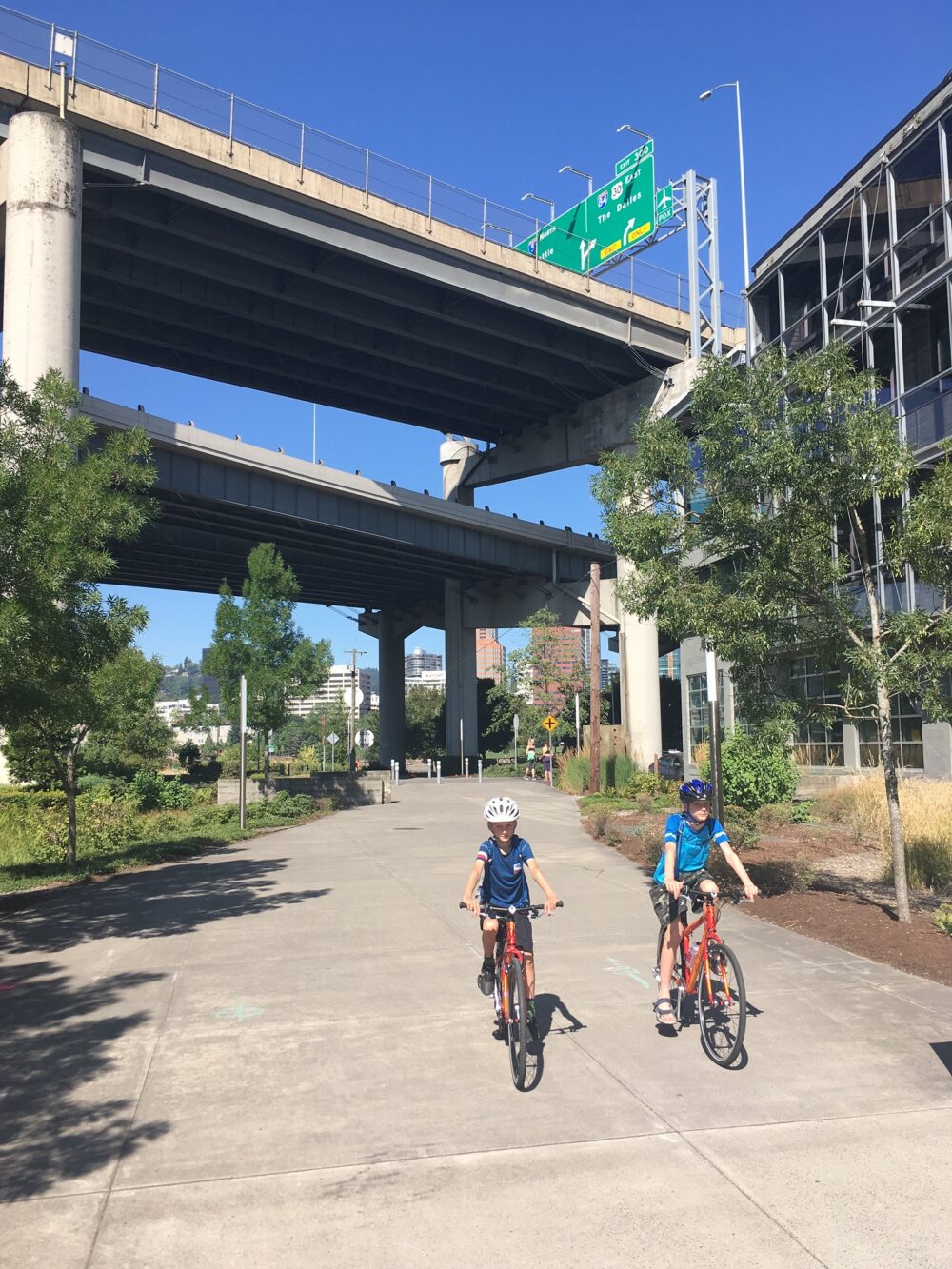
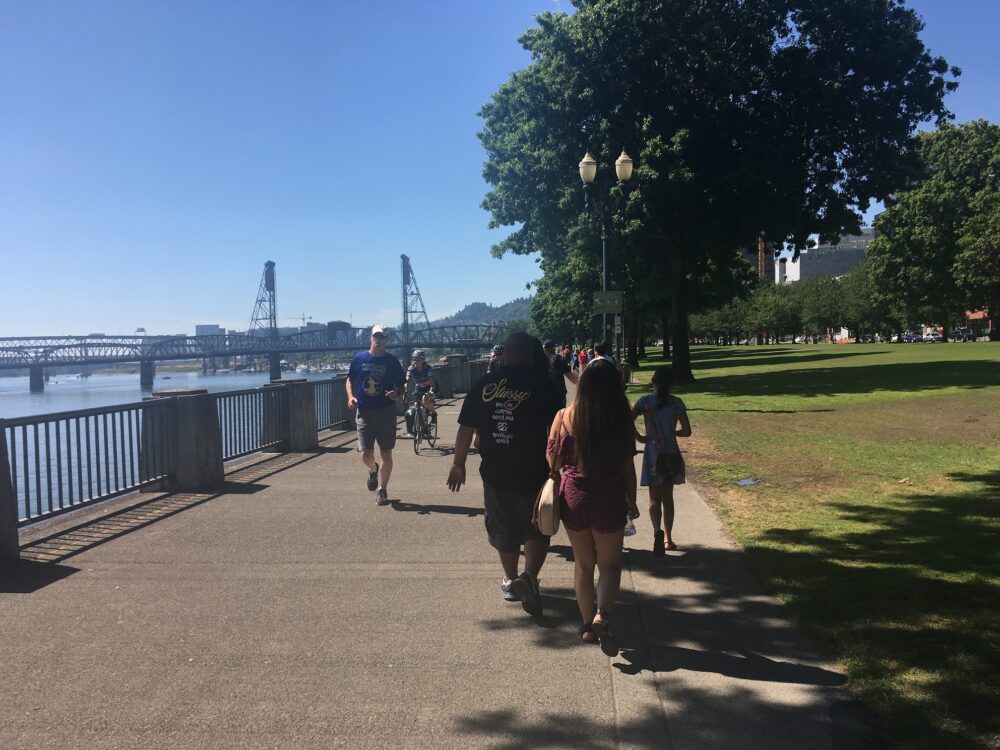
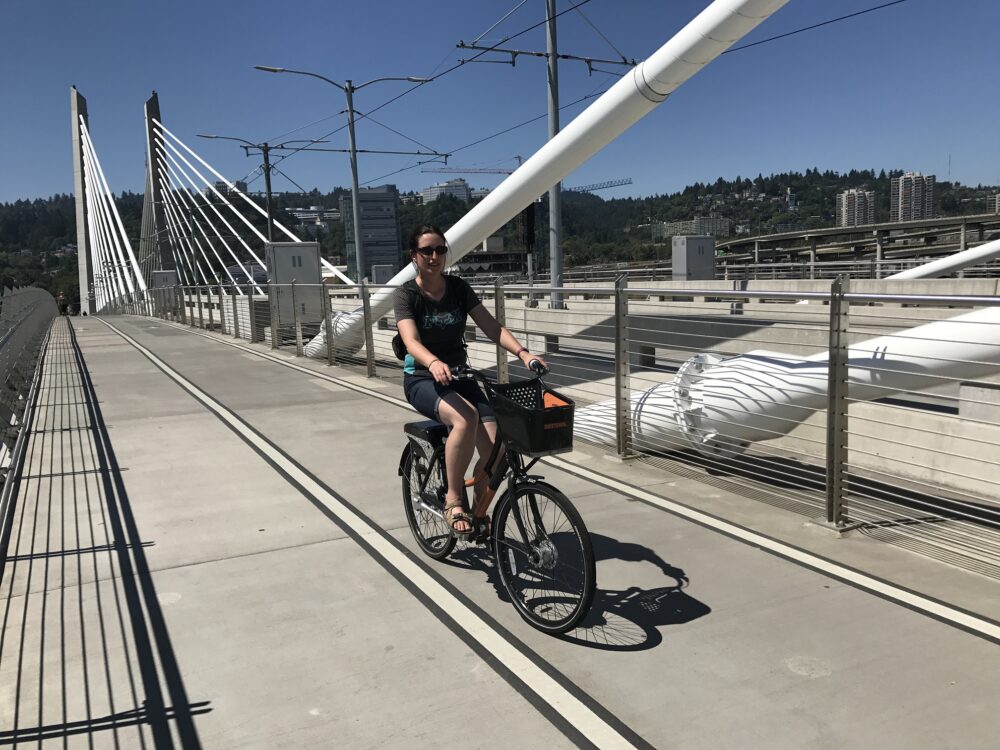
Once we got away from the multi-use paths we were out in the traffic, and this is where the real test of cycle-friendliness lies. We decided to visit a café we’d been recommended four and a half miles away* This is a decent distance to ride on a hot day, and is a good way to test out how safe it is to cycle somewhere. Pick a place you want to go to, and see if you can get there safely, rather than picking somewhere you know the cycle paths will take you to.
In this case, I used Google Maps to provide the route, and cross checked it against the cycle route map of Portland I had, to ensure that Google wasn’t sending us down a main interstate highway. It all looked good, so off we set.
I have to say, whilst there wasn’t always a physical barrier between the cycle route and the traffic, at all times it felt as if we were a decent distance away from the vehicles. On the busier roads the cycle paths were wide enough to go two abreast if needed, they were continuous, had clear signalling at junctions, and there was always some sort of separation from the traffic.
Admittedly it was a Saturday, so the roads were nowhere near as busy as they would be during the school run rush hour, but I was really comfortable letting both boys cycle ahead of me, and didn’t have to do any of the constant shouting I do in the UK to keep them safe, or deal with the cycle path suddenly ending and throwing us out into busy traffic. We arrived safely, enjoyed a great lunch and rode back into the city centre to return the bikes.

(Updated: Velo Cult – a bike shop / cafe / bike museum / bar all in one was an incredible place, which sadly closed in August 2018).
Here’s a few instances of the types of street design that helped to keep us safe whilst cycling in Portland.
The use of concrete planters to separate the cyclists from the traffic, and improve the visual look of the area:
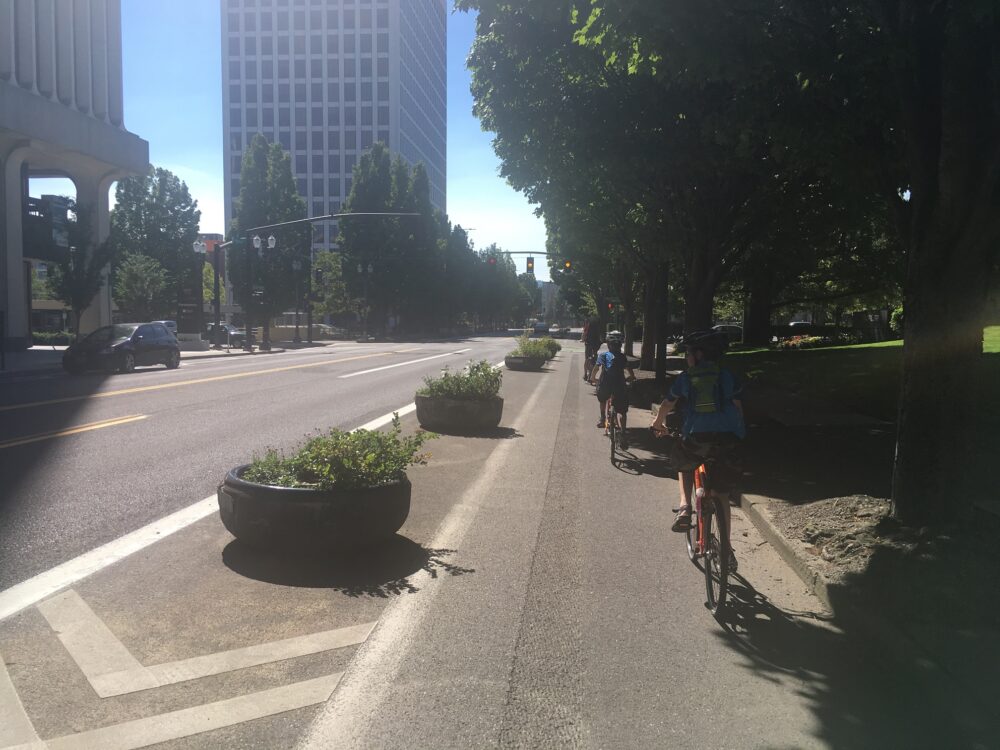
Greenways that run parallel to the major streets, where the speed limit has been lowered to either 20 or 25 miles per hour, and priority markings on the road make bikes dominate over other vehicles.
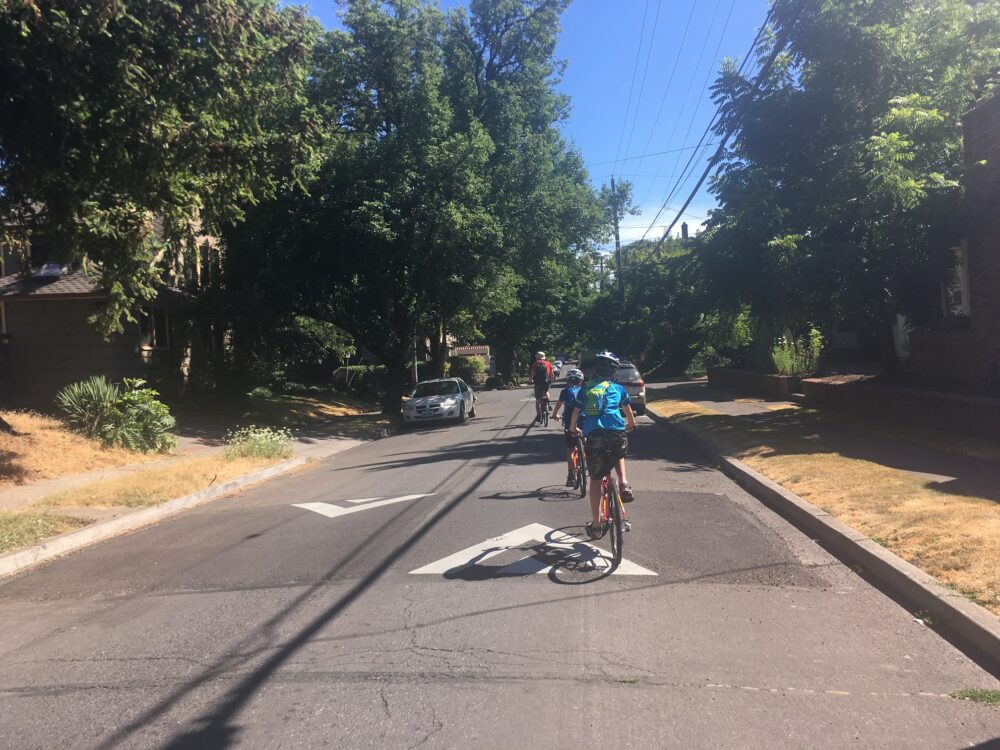
River crossings for cyclists below the main carriageway, making it easy and safe to get across the river.
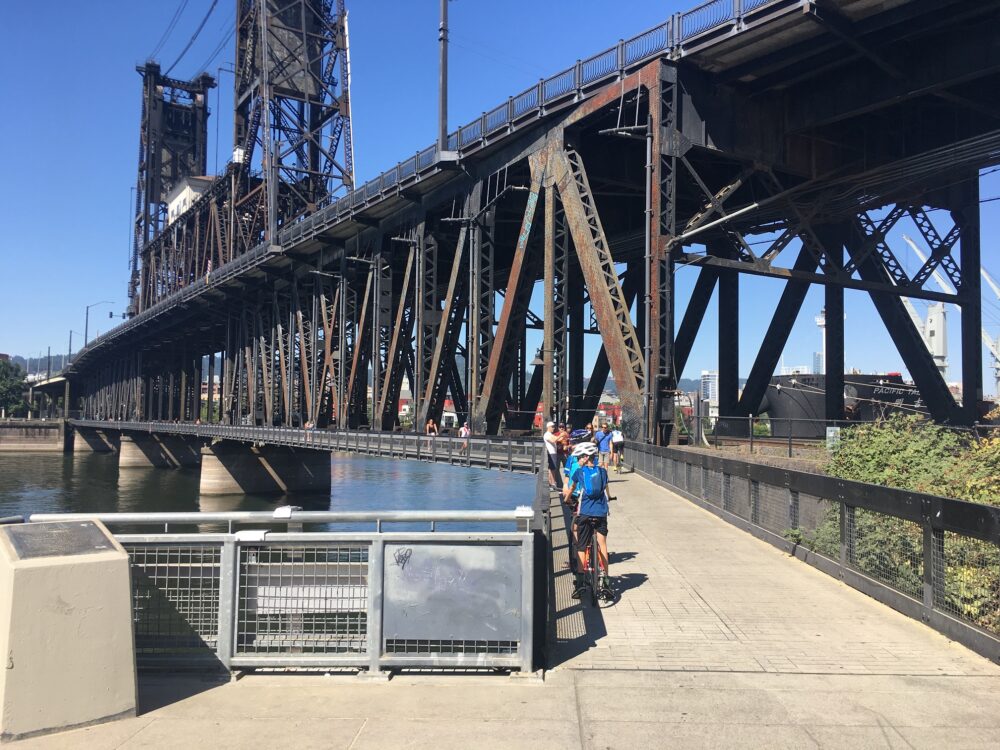
Clear markings at junctions to make it clear to cars where bikes will be positioned as they enter, cross and exit the junction:
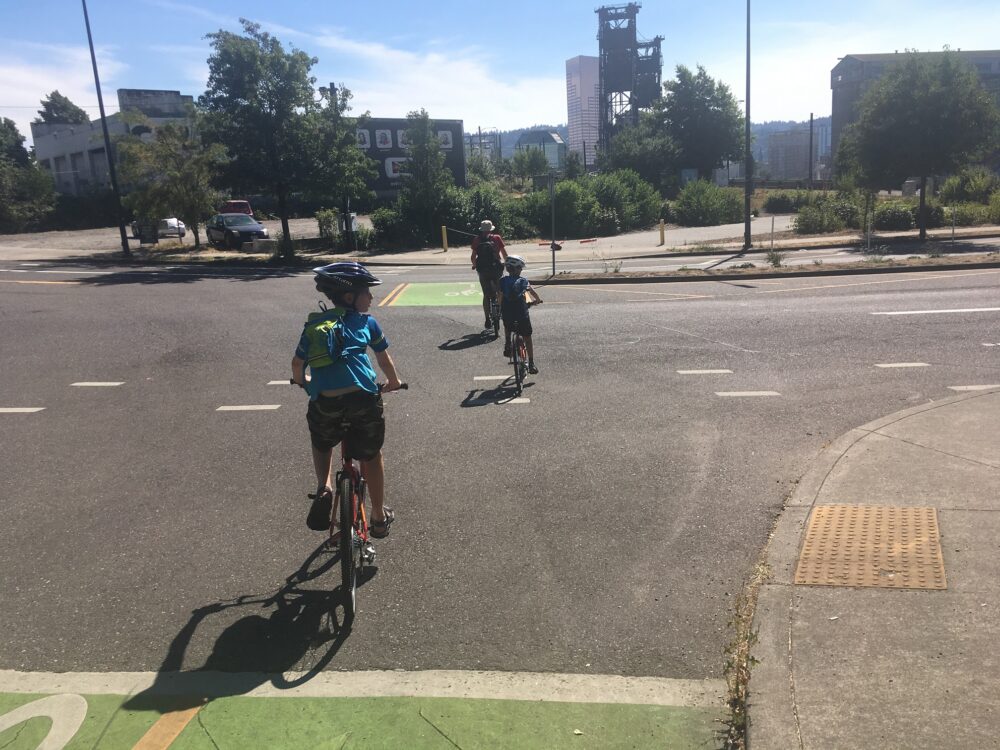
Plenty of space for the entire family to wait to cross between multiple lanes of traffic (trying to cross with a trailer or tagalong when the boys were younger was often very hazardous, as bad design means there is not enough space for more than one bike length)
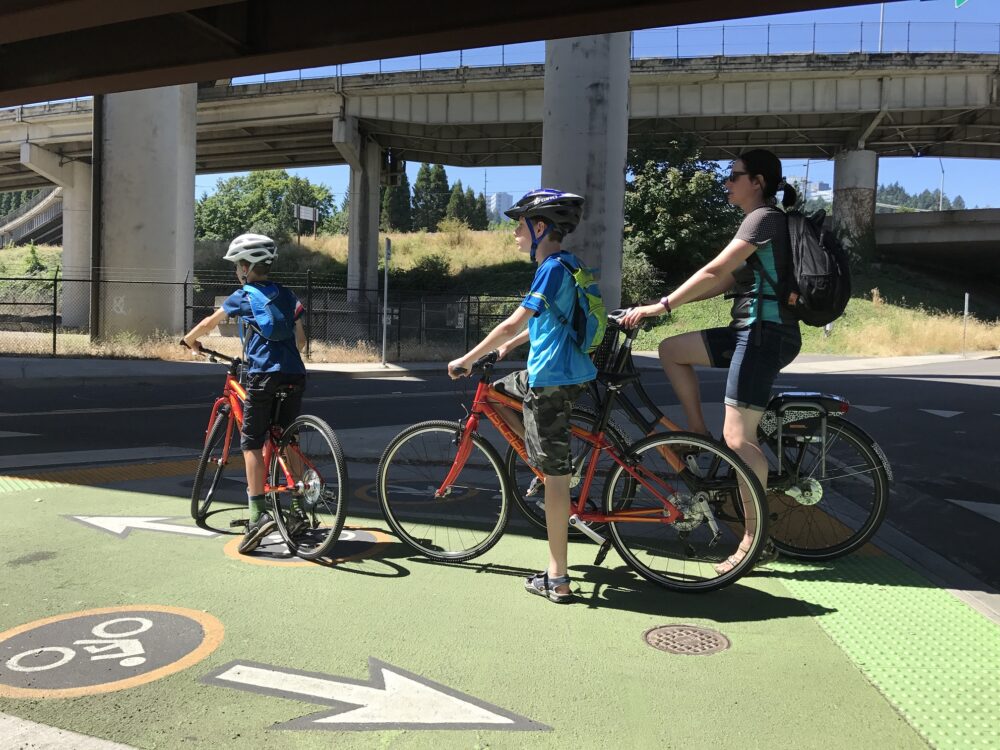
What really surprised me about Portland was that the car is still absolute king, but despite this the city has managed to create an infrastructure to allow children to ride safely. It was always very noisy with the roar of traffic, even on the traffic free routes, as these often run alongside multi-lane express ways. It may look peaceful, but in fact it was really hard to conduct a conversation at times due to the roar of the traffic!
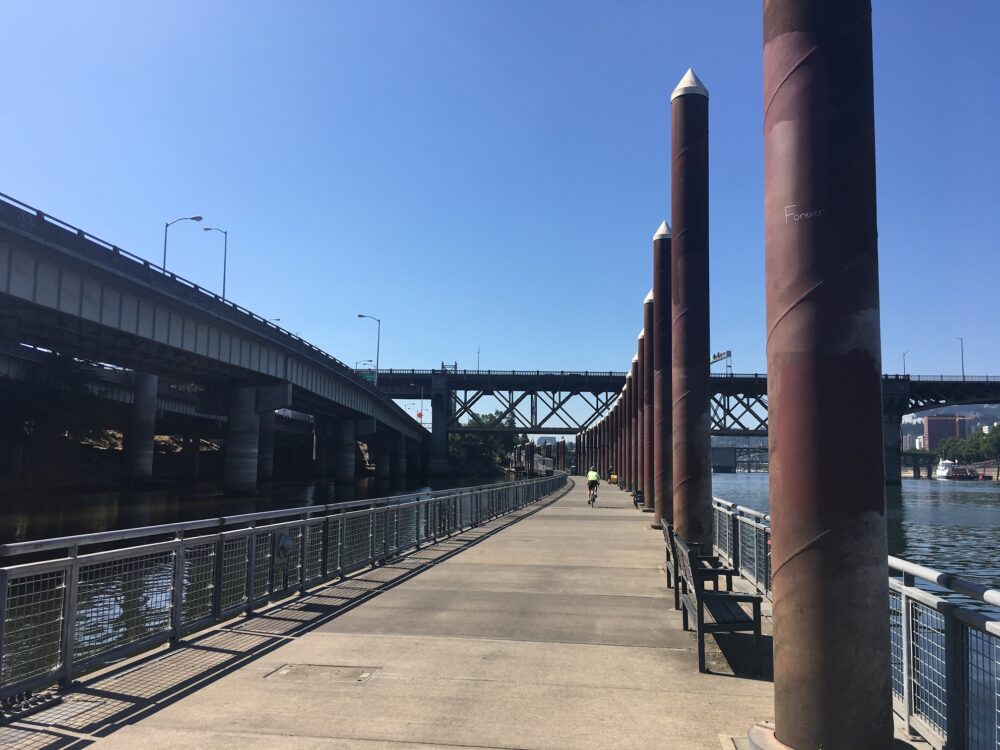
Cycling still feels a minority activity, which is different to being in Amsterdam and Copenhagen, where you immediately feel that bikes are on a par with cars in terms of usage. However, the infrastructure is there, and it’s definitely being used, with now 7.2% of all commutes in Portland being made by bike. At the end of the day the boys said they’d felt safe at all times, and I had also enjoyed a relaxed, stress free day of riding. I’d therefore recommend cycling in Portland to anyone who is visiting – there are plenty of places who rent out kids bikes as well as trailers and tagalongs if you don’t have your own bikes with you.
*Note – if you’re using Portland’s Town Bike hire scheme, then be careful riding too far from downtown. We got hit with two $20 fines for locking the bikes outside the Velo Cult café/shop, as we were outside the rental zone, which we didn’t realise until afterwards. It would have been cheaper therefore for us to hire bikes for the day from one of the city centre bike shops than use the pay by the hour rental bikes!
A big thank you to Islabikes USA who kindly lent us two of their Islabikes Beinn for our day of cycling. (Updated: Sadly Islabikes USA closed during the Winter of 2018)
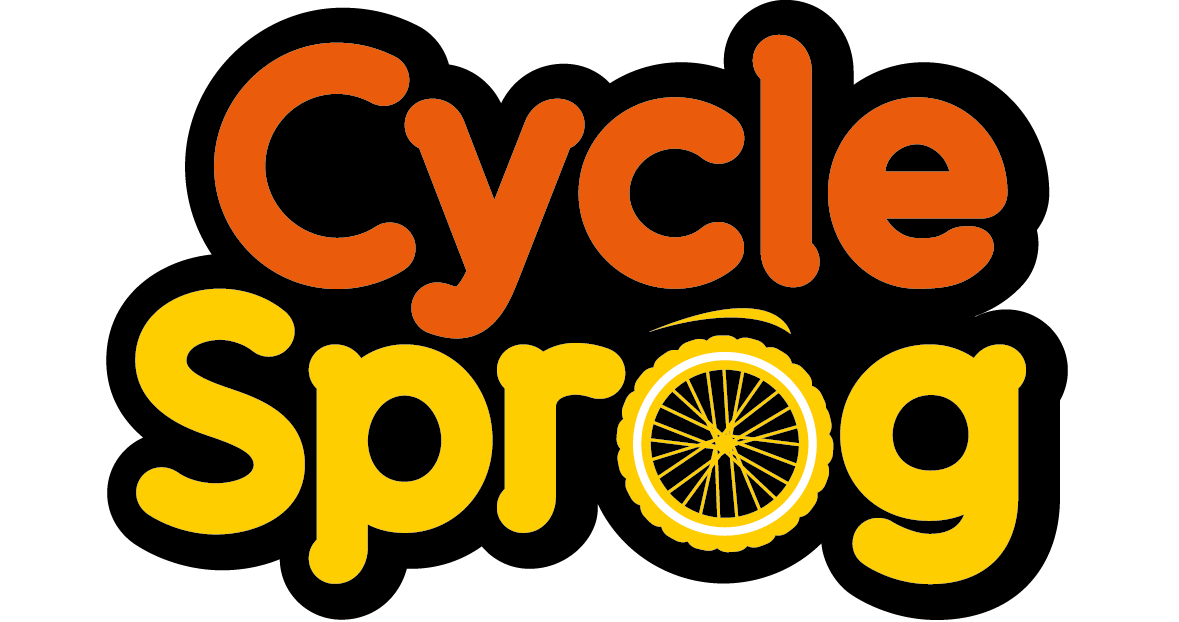
Comments